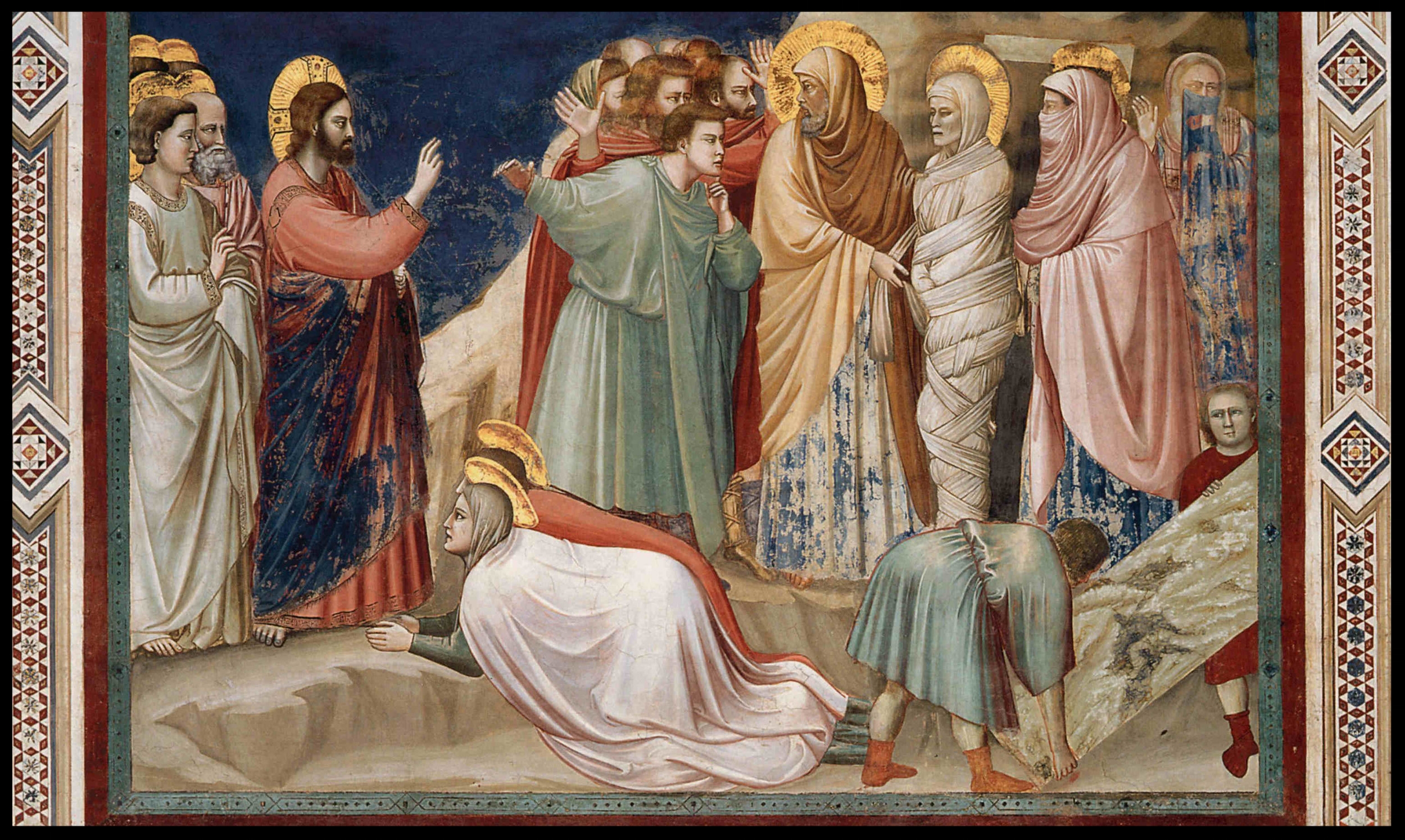He cried out in a loud voice,
"Lazarus, come out!"
The dead man came out,
tied hand and foot with burial bands,
and his face was wrapped in a cloth.
So Jesus said to them,
"Untie him and let him go."
One of my cherished possessions is a simple ordination holy card given to me by a priest friend at the time of his ordination in 1973. These cards have been used for centuries to mark this memorable moment and as a remembrance for family and friends. Styles have obviously changed through the years but in 1973, contemporary and almost quasi-pop art was de rigueur. The card was a contemporary graphic with the words: Friendship doubles our joy and divides our grief. That beautiful maxim has stayed with me all these years and I often use it in the context of funeral homilies. For, indeed, the gift of friendship expands the richness of our lives and can carry us through the inevitable challenges that all life brings.
In reflecting on Jesus, there’s a tendency among Christians to focus attention on his divinity, at the expense of his humanity. While Catholic dogma is clear in articulating our belief that Jesus is “true God and true man,” there is always a tendency to give priority to his divinity over his humanity. Biblical scholars would say that a ‘high Christology’ seems to win out over a ‘low Christology!’ There is, of course, a mystery that we are wrestling with here as we plunge the theological depths to comprehend the intricacies of the ‘hypostatic’ union. Nevertheless, more often than not, the human Jesus gives way to the Divine.
The beautiful story of the raising of Lazarus captures for us and holds both the human and divine Jesus in a dramatic and moving tension. The scriptures are amazingly candid in speaking of the close bonds of friendship that the Lord had with Martha, Mary and their brother Lazarus. Jesus enjoyed their hospitality as he shared meals with them and rested from the incessant demands of his public ministry. Jesus could rest in their company and companionship.
No wonder then that on hearing of the death of ‘his friend’ Lazarus, we have recorded the shortest verse in the Scriptures (Jn. 11:35) It is quite simply, “Jesus wept.” It is the obvious, thoroughly human emotion that one experiences at the loss of a dearly loved friend.
The author did not record this story merely to convey the humanity of the Lord in all its anguish in the face of human loss, but to capture another dimension of the Christ, the Lord of creation. In response to Martha’s desolation, Jesus proclaims the very essence of his ministry as the ‘anointed one.’ He proclaims, "I am the resurrection and the life; whoever believes in me, even if he dies, will live, and everyone who lives and believes in me will never die. Do you believe this?" He invites her faith in the one who has power over the forces of death and life.
The dramatic encounter continues as the Lord is led to the tomb of Lazarus. It is precisely here, amid the wailing and desolation of family and friends, that Jesus himself is moved with the deepest emotion and weeps. Yet, the God-man, would not and could not let this moment be the final chapter is this story of loving friendship. He commands that the stone from the tomb be rolled back and cries out in a loud voice, “Lazarus, come out.” At the Messiah’s command, the dead man came out, still bound with the traditional burial wrappings. Jesus commands, “Untie him and let him go.”
My sisters and brothers, that same Jesus, whose loving friendship we have all been called to, stands before us this day and speaks those same words of liberation over whatever may hold us bound or captive; whatever fears that may paralyze us; whatever heaviness of heart that may enchain us. Untie him or her and let them go. For this amazing grace, let us give God thanks!
